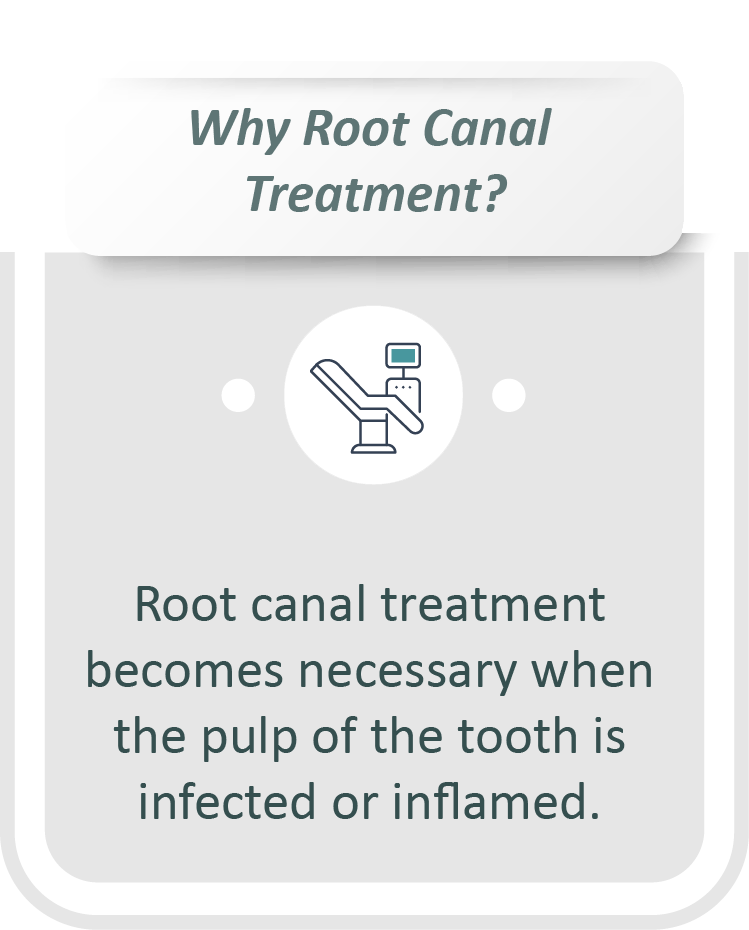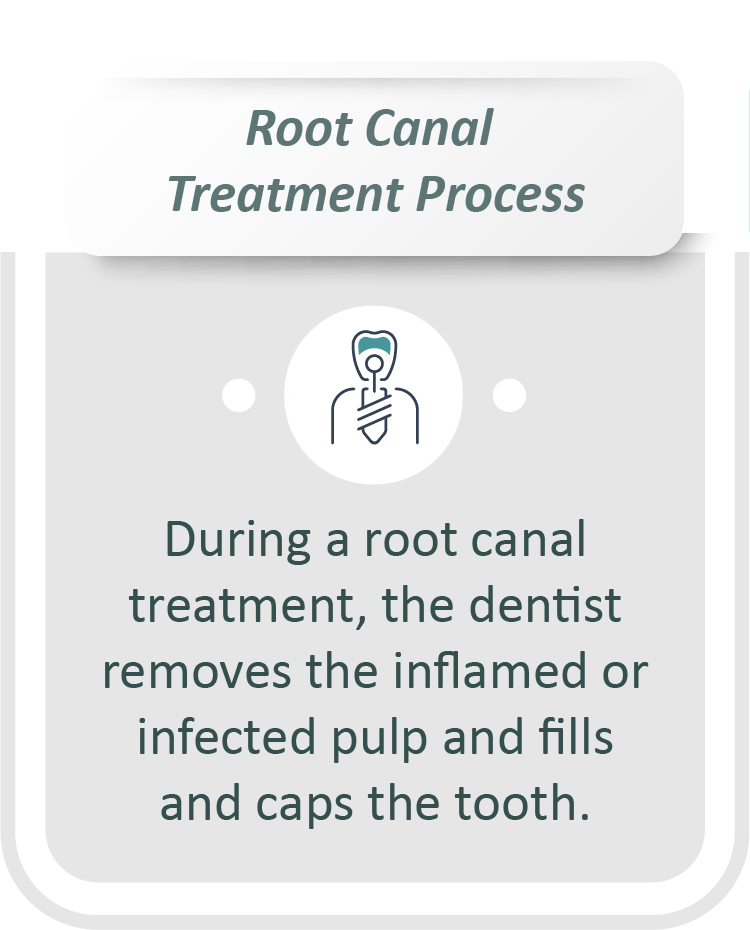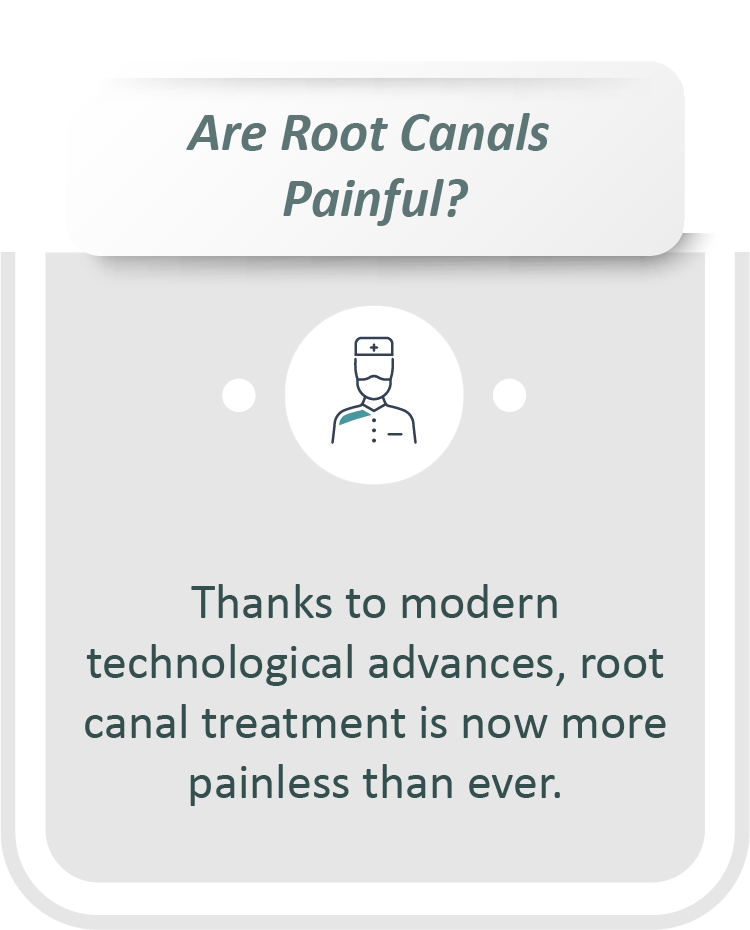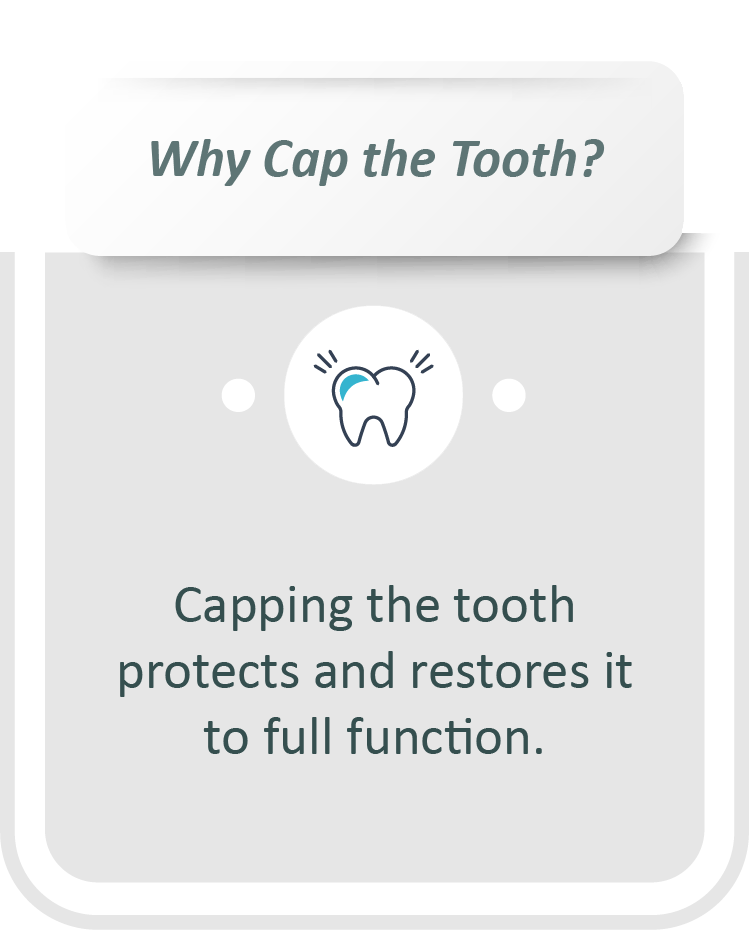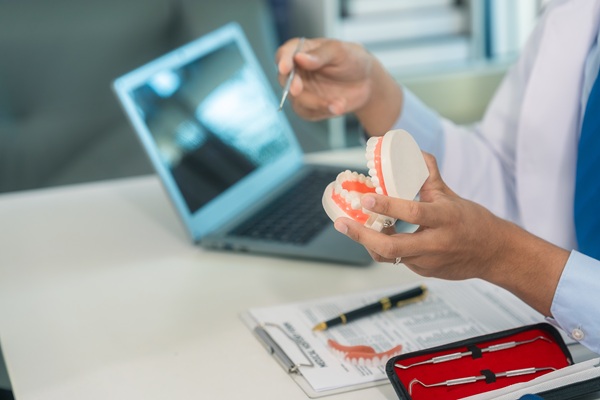Root Canal Treatment Alpharetta, GA
Many patients feel anxious when they learn they need a root canal. Rest assured that modern root canals are straightforward procedures. During a root canal, the dental team relieves tooth pain by removing infected tissue. Root canal procedures also involve the application of numbing medication to prevent patient discomfort.
Root canals available at Windward Parkway Dentistry in Alpharetta and the surrounding area. Our team takes steps to ensure that patients feel relaxed during their procedure. We provide comprehensive follow-up care, too. Call us at (770) 814-6224 to learn more.
Understanding Root Canals
Below the enamel and dentin, there is pulp at the center of a tooth. The pulp contains blood vessels, nerves, and connective tissue. When the pulp becomes injured or infected, the patient may experience swelling, infection, and pain. Even when outwardly apparent symptoms are not present, bacteria within the root canal may cause decay and damage to the jawbone. In many cases, a root canal may be necessary to save the tooth.
A root canal can remove the infected or inflamed pulp to prevent further issues. Various situations can call for a root canal, such as repeat dental work on the same tooth, cracks or chips, deep cavities, or a tooth injury. Signs that a patient may need root canal treatment include bumps along the gums, darkening gums, severe pain or sensitivity while biting or chewing, and swollen or tender gums. People should be aware that the signs of root canal infection or injury are not always obvious and that a thorough examination may be necessary for diagnosis.
“A root canal can remove the infected or inflamed pulp to prevent further issues.”
Root Canal Treatment Benefits
The goal of root canal treatment is to save and preserve the natural tooth. One of the biggest benefits of root canals is getting rid of pain and infection in the mouth. Additional benefits include:
- Improved appearance: After root canal treatment, the patient will receive a crown or filling that restores their tooth's aesthetic appearance.
- Reduced risk for further decay: Removal of the infected dental pulp prevents the bacteria from spreading and damaging the surrounding teeth.
- Restored function: Root canals restore a tooth's health to function like any other tooth.
- Saving the natural tooth: Nothing can replace the look and function of a natural tooth.
” The goal of root canal treatment is to save and preserve the natural tooth.”
What Happens During a Root Canal
Treatment begins with an X-ray. Our dental team examines the patient's mouth and creates a treatment plan. They will also provide a numbing medication to ensure patient comfort during the procedure. The dental team places a dental shield around the tooth. This structure protects the tooth and prevents bacteria from spreading to other parts of the mouth. Once the shield is in place, the dentist drills into the top of the tooth.
We then remove decayed enamel and dentin by exposing infected pulp and cleaning out the inside of the tooth. During this stage of treatment, the dentist may use an antibiotic solution to kill bacteria. Then they fill and seal the tooth. Root canals also include a crown procedure. Each crown is custom-fitted and designed to match the patient's natural teeth. Crowns restore the appearance of a damaged tooth and improve oral function.
Root canals are an option for most patients, but some patients might receive improved results with a different procedure. If the patient's tooth is severely damaged, an extraction may be necessary. In rare cases, root canals can also trigger complications like a dental abscess. Rest assured that these complications are rare. Studies find that root canals have a success rate of up to 98%.
“Root canals are an option for most patients, but some patients might receive improved results with a different procedure.”
Check out what others are saying about our dental services on Yelp: Root Canal Treatment in Alpharetta, GA
Preventing the Need for Root Canal Treatment
Although root canals are effective procedures to restore infected or damaged teeth, it is best to avoid the need for a root canal in the first place. Preventing the need for root canal treatment is simple, maintain a good oral hygiene routine. Since root canals are often necessary due to tooth decay, people can help prevent this by brushing twice and flossing once every day.
It is also essential to attend regular dental appointments and seek dental attention as soon as possible when pain or discomfort arises. People can also take certain actions to avoid tooth damage than can necessitate root canal treatment. This includes avoiding acidic foods and beverages, not chewing on ice, and wearing a mouthguard while playing sports and at night if teeth grinding occurs.
“Although root canals are effective procedures to restore infected or damaged teeth, it is best to avoid the need for a root canal in the first place.”
Questions Answered on This Page
Q. What are the benefits of a root canal?
Q. How can someone prevent the need for a root canal?
Q. What is an alternative to root canal treatment?
Q. What happens during root canal treatment?
People Also Ask
Q. Are there any alternatives to root canals?
Q. How can a root canal help save my cracked tooth?
Q. Is increased sensitivity to temperature a sign that endodontic surgery is necessary?
Q. Are root canals a safe and common procedure?
Q. Are pain and tenderness when touching the teeth or chewing a sign of a problem?
Q. What are the services offered endodontists vs. general dentist?
Alternatives To Root Canal Treatment
Root canals are safe and effective procedures to save a tooth. However, some situations may require alternative treatment, such as extraction. Extraction involves pulling out the entire tooth.
This treatment takes more time and can necessitate further procedures to surrounding teeth and supporting tissue. It is always best to try and save a natural tooth when possible. Extractions are best for when a tooth is too damaged to be saved with a root canal.
“Extractions are best for when a tooth is too damaged to be saved with a root canal.”
Frequently Asked Questions
Q. What is a root canal?
A. Root canals can remove infected or inflamed pulp. Pulp is a soft tissue that helps keep the tooth anchored within the mouth. It supplies blood flow and connects the tooth to nerve endings. During a root canal, a dental provider cleans out the pulp and fills the tooth. They also place a crown on the tooth to protect it from future damage.
Q. What are some alternatives to a root canal?
A. Root canals are a good option for most patients since they preserve the natural tooth. Patients who keep their natural teeth may avoid future dental problems. Preserving the teeth prevents jawbone loss, spacing issues, and jaw misalignment.
However, a root canal is not right for everyone. If the tooth becomes severely damaged, the dentist may opt for extraction instead. During an extraction, the dentist removes the entire tooth. He or she can then prepare a false tooth to fill the gap.
Q. Are root canals painful?
A. Modern root canals using numbing medications to prevent discomfort. Some patients may experience soreness after their root canal. However, these side effects usually disappear within a few days.
Q. How much do root canals cost?
A. Costs can vary depending on insurance coverage. As a rule, root canals carry a higher price tag than extraction. However, root canals preserve the tooth and may help prevent the need for future dental care. Our office team can help you compare treatment costs.
Q. Can children receive a root canal?
A. Adults and children can receive root canals for permanent teeth. But if a child develops severe decay or inflammation within a baby tooth, the dental provider may recommend an extraction. Extraction may be the right option if the child will soon lose the affected tooth.
In some cases, however, the provider may opt to perform a baby root canal. These procedures are similar to an adult root canal. Baby root canals preserve the tooth while preventing the infection from spreading.
Endodontic Terminology
Call Us Today
If your tooth is injured or infected, do not hesitate to seek treatment. Our team at Windward Parkway Dentistry can help save your tooth. Call us today at 770-814-6224 to learn more about our services or schedule an appointment.
Helpful Related Links
- American Dental Association (ADA). Glossary of Dental Clinical Terms. 2024
- American Academy of Cosmetic Dentistry® (AACD). Home Page. 2024
- WebMD. WebMD’s Oral Care Guide. 2024
About our business and website security
- We accept the following payment methods: Cash, Check, Discover, MasterCard, and Visa
- We serve patients from the following counties: Fulton County
- We serve patients from the following cities: Alpharetta, Bethany Crossing, Herring Township, and Milton
- Norton Safe Web. View Details
- Trend Micro Site Safety Center. View Details
Back to top of Root Canal Treatment

